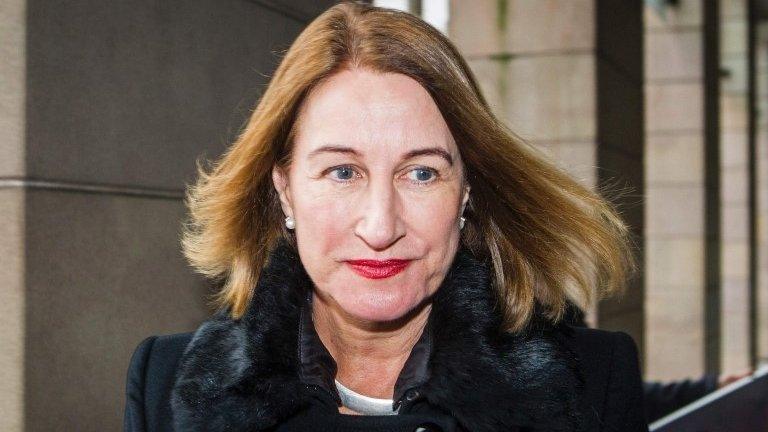Survivors' group 'loses faith' in child sex abuse inquiry
- Published
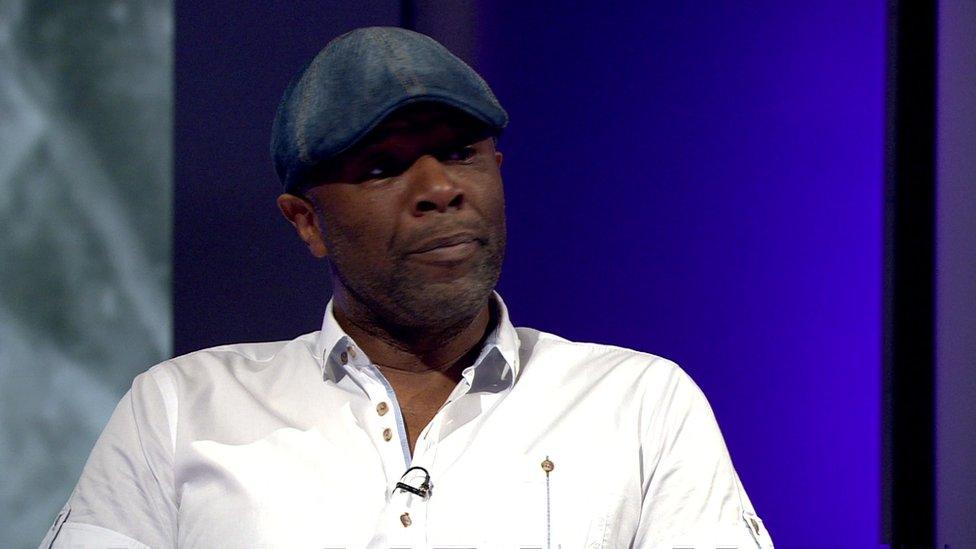
Raymond Stevenson is one of the survivors' group's leaders
A 600-strong survivors' group has lost faith in the independent inquiry into historical child sexual abuse, its leaders have said.
Shirley Oaks Survivors Association told the BBC it would recommend withdrawing from the Lambeth strand of the inquiry because it was not "truly independent".
Ex-inquiry chair Justice Lowell Goddard has said she was prevented from picking her own staff, and that civil servants were prioritised by the Home Office.
Home Secretary Amber Rudd denied this.
The treatment of children in care in Lambeth, south London, during the second half of the 20th Century is one of 13 areas that the inquiry is looking at.
But the Shirley Oaks group said the Home Office was one of the institutions that had failed children in care in Lambeth in the past - and that the scale of its presence in the inquiry staff represented a conflict of interest.
Raymond Stevenson, from the survivors' group, told BBC Newsnight there had been a sea change in the way the inquiry was operating.
"We have to recommend at this moment in time that we pull out. We have given the inquiry an opportunity to meet us. We contacted them two weeks ago and we are still waiting for a meeting," he said.
"Some of our members have been through investigations before which had Home Office members and staff part of it so we have been through that.
"This is about the third investigation Lambeth has been through so what we wanted from this was for it to be truly independent. We were sold a theory it would be truly independent."
'Progress impeded'
In a written submission to the Commons Home Affairs Committee, Dame Lowell said: "The panel and I have had little or no input into either the composition of the senior management team or the recruitment of secretariat staff during the lifetime of the current inquiry.
"The administrative arrangements made by the Home Office as the inquiry's sponsor meant that in the recruitment of staff priority was given to civil servants.
"Their approach has been bureaucratic and the inquiry's progress has been impeded by a lack of adequate systems and personnel, leading to critical delays.
"I felt as chair handicapped by not being given a free hand to recruit staff of the type that I judged to be essential."
Ms Rudd denied that Dame Lowell had been unable to choose her own staff, and has also said the scope of the inquiry will not change despite Dame Lowell's claim it was too big and bureaucratic and should focus on current child protection and future changes.
The inquiry was set up in 2014 and announced that 13 initial investigations would look into allegations against local authorities, religious organisations, the armed forces, public and private institutions and people in the public eye.
It has been beset by problems, and last month Dame Lowell became the third chair to quit the inquiry.
Prof Alexis Jay, who led the Rotherham abuse inquiry, is to be the new chairwoman of the inquiry into child sexual abuse in England and Wales.
- Published7 September 2016
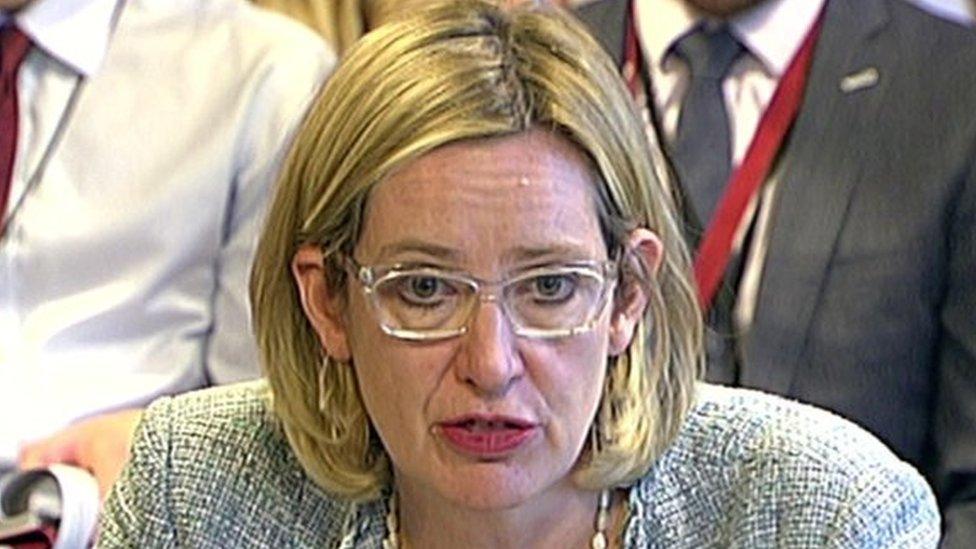
- Published6 September 2016
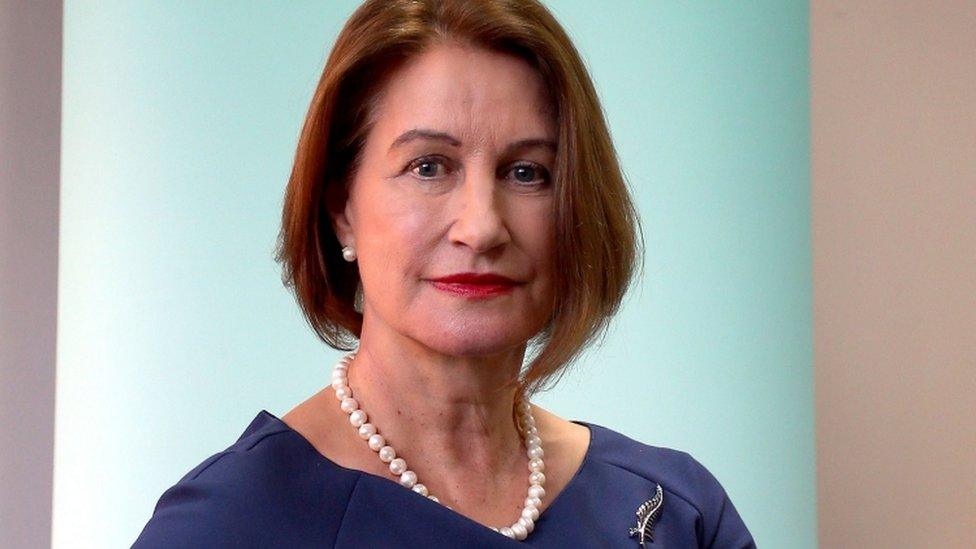
- Published6 October 2020
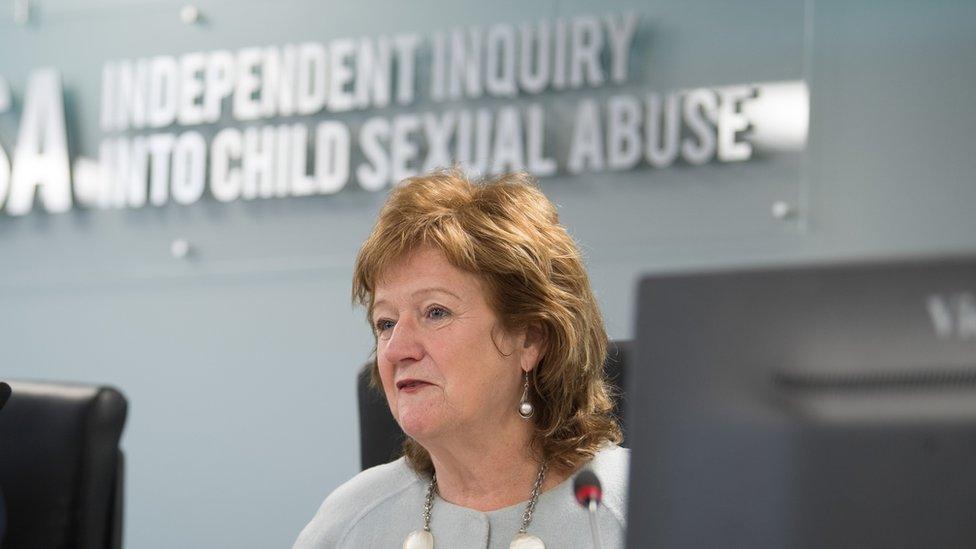
- Published5 August 2016
